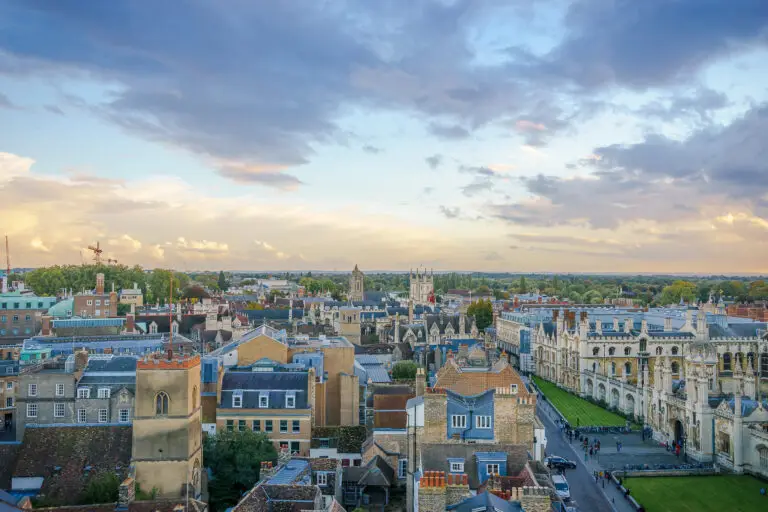One cabinet minister who still appears to have a long-term strategy, despite a growing expectation of a Labour government next year, is Michael Gove. The Secretary of State for Levelling Up, Housing and Communities has reportedly drawn up proposals to turn Cambridge into Britain’s Silicon Valley.
With a vision to combat England’s housing crisis, whilst also catalysing growth in the R&D, life sciences and technology sectors, it certainly offers potential.
But is it a realistic possibility?
While already largely prosperous, the Greater Cambridge area has long been identified as ripe for more growth. It has strong innovation and research-led foundations as part of the so-called ‘golden triangle’ making it highly attractive to global investors.
Indeed, it has already been subject of attention for a new £5bn East West Rail Link, and of course the Ox-Camb Arc, an original plan to join up the two key regions. Despite being initially abandoned, the Arc is having something of a resurgence in political circles.
Nevertheless, this new vision is one that goes beyond these ideas. It envisages a huge expansion of the city with as many as 250,000 new homes built over the next two decades and the prospect of billions of pounds of investment.
On paper it seems highly appealing. With a current population of around 150,000, and a recognised demand for housing, the delivery of new homes would certainly help ease this issue. Economic growth in priority sectors such as life science would buoy the national economy as well as create local jobs.
Yet, there are several issues. The focus should be on affordability of these houses, if it is to keep with the broad Levelling Up agenda – something that would be a challenge given the South East’s existing reputation as an expensive place to live.
And it’s also about the area too; whilst Gove is supportive of brownfield first development, this is more costly and could threaten viability. Development of green field land is inevitable, extending to identifying large swathes of land to construct new business parks, laboratories, and science hubs.
Locally, support has not been forthcoming. The Leader of Cambridgeshire District Council noted that while unaware of the proposals, the plans are “inappropriate”, meanwhile Conservative MP for South Cambridgeshire, Anthony Browne, noted it was a “ludicrous idea which he would be opposing.”
There is also the broader question raised by some as to whether this is the right place to see this type of project altogether, with areas in the Midlands and the North perhaps more suited to this transformation.
However, despite all this it’s important to note that the plan has quite tactfully been labelled as a ‘concept’, rather than anything clear cut.
Perhaps for Michael Gove and the Conservative government it’s a place to build from, developing a more ‘watered down’ version that is more deliverable. It requires cohesiveness, collaboration, and must follow the tune of levelling-up, providing regeneration, new jobs, homes, and widespread economic benefit.





